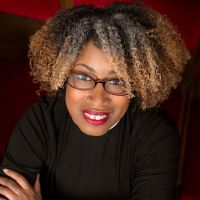Commentary on Proverbs 22:1-2, 8-9, 22-23
The book of Proverbs includes a collection of folk wisdom sayings of various lengths so that in some chapters the individual verses are not actually related to each other.
Therefore Proverbs is the one biblical book where the lectionary practice of skipping verses is easily justified. Today’s lesson is a collection of verses that speak about the poor.
In verses 1-2 the poor are those who simply lack the resources of wealthier people. The word, ras, is rare, but popular in Proverbs. (Sixteen of its twenty-four uses are in the Proverbs. In other cases, David’s self-description in 1 Samuel 18:23 and Nathan’s description of the man in his parable whose lone lamb is stolen, 2 Samuel 12:1-3 use the word. It is noticeably lacking in the Prophets.) In verses 8-9 and 22-23, the poor are dal, a much more common word in the Torah and the Prophets, suggesting abject poverty and helplessness.
The first unit in today’s reading, verses 1-2, does not reject wealth or wealthy people, but it does value a person’s reputation, “name,” above their wealth. The second unit, verses 8-9, should probably be amended to include verse 7: “The rich rules over the poor, and the borrower is the slave of the lender.” The rule of the rich over the poor and the (lack of) ethics between debtors and the indebted in verse 7 is related to the “injustice” of verse 8 — the Hebrew “iniquity” is stronger than indicated by the NRSV here. Verse 9 blesses the one who shares what they have (bread) with the poor, in opposition to the lending (implying also collecting interest) in verse 7.
The final unit begins with what should probably be read as a forceful command, “Do not rob the poor!” Why not? “Because they are [already] poor!” One might think that goes without saying, but apparently not. The helpless poor, dal, are linked with the oppressed poor, ‘oni; the word is used even more widely than dal in the Torah and Prophets. And, for those who might persist in asking “why not?” the answer is that the Lord prosecutes, (a legal term, riyv, “pleads” in NRSV) the legal cases of the poor, seizing the financial assets of the abusive, wealthy, defendants.
Verse 9 is the one that fuels my exegetical imagination. It blesses the generous who share what they have with the poor. The generous soul here is one with “a good eye,” (as opposed to an “evil” or “stingy” eye). The generous person sees and takes note of the needs of the poor; seeing is an intrinsic part of this generosity. Significantly, the text does not claim that one does not have to be wealthy to be generous. That the generous soul “shares” rather than “gives” may suggest that the generous person does not have an abundance of wealth from which to give charity.
And, this sharing suggests something else to me: I imagine a common meal, a table to which the poor is graciously welcome to share the bread of the generous soul who sees and meets the need, by inviting the poor to her or his own table, nourishing the dignity of the poor as well as meeting their basic needs. This is a different model of benevolence than simply writing a check.

September 9, 2012